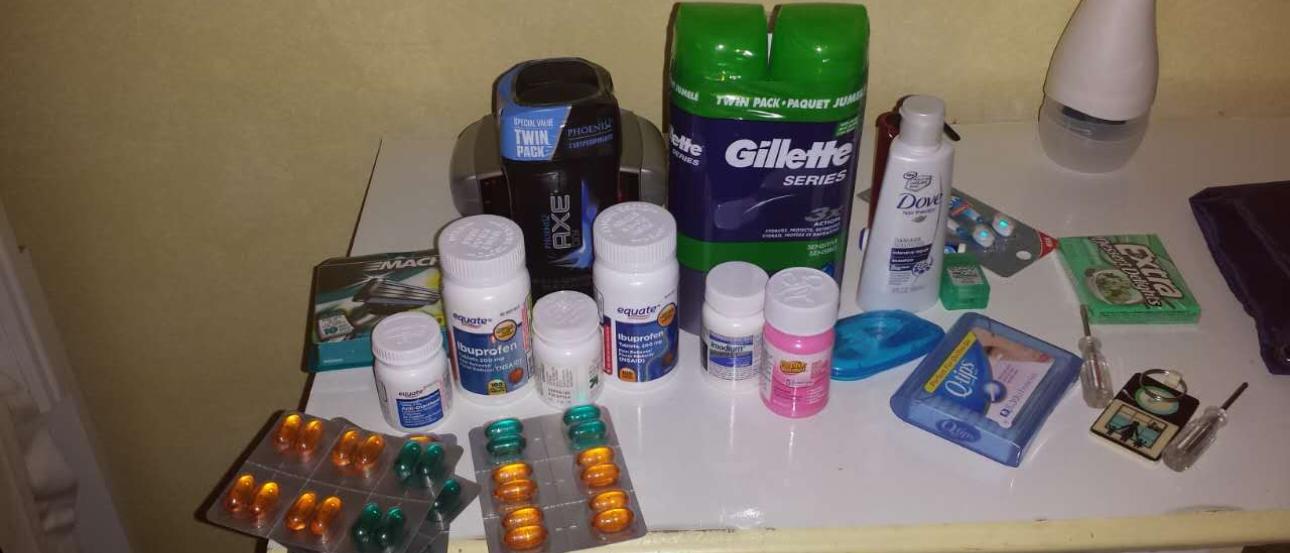It's easy to think of a study abroad experience as a break from the "norm" or a break from the everyday, and in many ways it is. Living in a place where everything is different can make it hard to imagine anything has stayed the same. Most of the time, finding these similarities is a pleasant surprise, but there's one similarity that isn't fun no matter what part of the world you're in--being sick. Catching a cold or having the stomach flu was the last thing on my mind when I imagined my study abroad experience, but unfortunately getting sick is still a part of life. Taking care of your health is important, but in a different country it can be difficult to know what to do when you're under the weather. Here's a list of the different kinds of sicknesses my classmates and I have dealt with so far and some tips on what to do or pack in your suitcase before you set off:
Colds/Flu:
Symptoms: stuffy nose, headache, sore throat, sleepy all day long
During the first few weeks, almost every student experienced some combination of these symptoms for a few days to a week. It makes sense, considering our bodies were adjusting to new environments, getting off airplanes and being around new people all day. Sleep seemed to be the best cure, but throat lozenges and tissues were valuable commodities at the time.
What to Bring:
Sore throat spray, Advil/Tylenol, cough drops, decongestion medicine
What's in China:
Tea! (It really did help with the sore throat) and spicy food (clears up your sinuses--at least temporarily). They also sell a form of cough drops, but they're more like candy than the menthol-y type in America (they're sold under the Snickers bars in the chaoshi of our building actually)
Stomach Flu/ Food Poisoning:
Symptoms: I think you know already...
We were warned in the first couple days about the possibility of getting "LaDuZi" from some of the food in China. While I recommend washing your fruit before eating it, there isn't much else you can do to completely be free from the possibility of a "LaDuZi" situation. I haven't had a bad experience so far, but I know plenty of other students who have. It's normal for your digestion to feel a little off in the first couple of weeks. Drinking water is important for staying hydrated and I've heard tums and Pepto-Bismol help too. At the beginning of this month I had a stomach virus, and I ended up going to the doctor for. I thought it might have been from something I ate, but after the second day I went to the hospital here and saw a doctor. He gave me hydration salts and some extra-strength tums as well as advice on what I should avoid (oily and spicy foods as well as coffee and overly sugared drinks) until my stomach was back to normal. It took about a week, but the medicine and advice was well worth the trip.
What to Bring:
Tums, Pepto-Bismol, Probiotic Vitamins
What's in China:
My roommate had a special kind of "Hei Tang" that's a sort of tea especially for stomach discomfort, but other than that there wasn't much I found to help me out here.
Pollution Sickness-
Symptoms: Stuffy nose, Itchy/dry eyes, Cough, Sore Throat
When the pollution is consistently high in Beijing, it's not uncommon to develop a cough, stuffy nose or even a headache from the air quality. This past week the AQI has been consistently above 200, and tonight I noticed the effect it's having on my sinuses and lungs. It isn't quite as drastic as a cold would be, but there is a noticeable difference. Wearing your mask and turning the air purifiers on in the rooms are the best way to keep your self as pollution free as possible.
What to Bring:
Decongestion Medicine
What there is in China:
Face masks (Kou Zhao), air purifiers
Home Sickness-
Symptoms: Missing friends and family, feeling like you’re missing out on something, craving foods from home, etc.
I know it's not exactly a "medical" condition, but on some days it's something that needs to be treated. Treating yourself to an "American" (or whatever country you're from) meal or snack every once in awhile, watching a favorite movie, or video calling people from home usually do the trick. Remember that even if you're missing out on something, what you're trading it for is an equally rewarding experience. Also, even if it seems like everyone else isn't thinking about what they left behind back home, they probably are or will at some point. Enjoy your time, with less than a month left, I can honestly say that it'll go by quickly and you'll be wondering where the time went.
What to bring:
Movies/Books/Music you enjoy, a few special snacks you can't find at stores in China (for me in was plantains and chocolate chips), possibly pictures or other reminders of home
What there is in China:
There are some western foods that have made their way into the everyday lives of Chinese citizens (peanut butter, Oreo cookies and McDonald's are all relatively easy to find), lots of apps for staying in touch with family (WeChat, WhatsApp, Line, Skype, iMessage, Facetime, etc.), people to talk to about how you're feeling
Being sick is a bummer no matter what type of sickness you have or where you are. Obviously, eating well and taking care of your body can help prevent catching something, but its important to take sickness seriously if you're feeling like it's affecting your studies or experience. I wish I packed more medicines (like my friend who contributed this picture) because they are tough to find in China without a prescription. Don't be afraid to stay in rest for a day if you're feeling like you may be coming down with something--there will be other chances to explore the city and it'll be more fun if you're not sneezing or running to the bathroom every few minutes.

Kelly Cunningham
My name is Kelly Cunningham and I am a Chinese Studies and English major at DePaul University. I love everything about languages-reading them, writing with them, speaking them, etc. I'm studying abroad to improve my Chinese and learn more about the culture.







